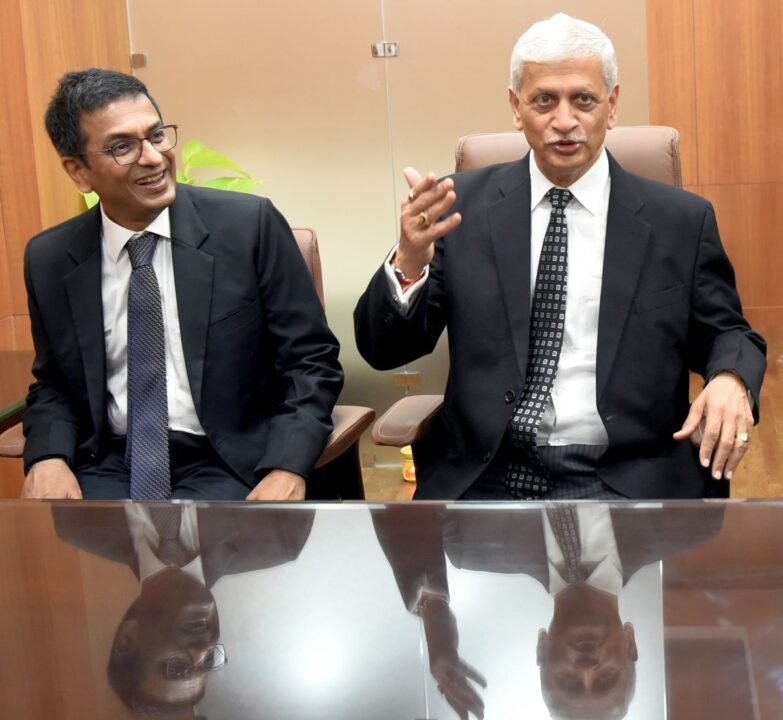NEW DELHI, Dec 10 (PTI): Sexual abuse of children remains a hidden problem as there is a culture of silence and therefore the state must encourage families to report abuse even where the perpetrator is a family member, Chief Justice D Y Chandrachud said on Saturday.
Speaking at a two-day national programme on the Protection of Children from Sexual Offences (POCSO) Act, the CJI said it is an unfortunate fact that the criminal justice system functions in a way that sometimes compounds the victims’ trauma and the executive must therefore join hands with the judiciary to prevent this from happening.
“The long-lasting implications of child sexual abuse make it imperative for the state and other stakeholders to create awareness regarding the prevention of child sexual abuse and its timely recognition and the remedy available in law. Children must be taught the difference between safe touch and unsafe touch. While this was previously couched as good touch and bad touch, child rights activists have urged parents to use the word safe and unsafe because the word good and bad have moral implications and may prevent them from reporting the abuse.
“Above all, there is an urgent need to ensure that the so-called honour of the family is not prioritised above the best interest of the child.”
He said the state must encourage the families to report abuse even when the perpetrator is a family member.
“It is an unfortunate fact that the manner in which the criminal justice system functions sometimes compounds drama, the victims’ trauma. The executive must therefore join hands with the judiciary to prevent this from happening,” CJI Chandrachud said.
Addressing the gathering, the CJI also urged the legislature to take into consideration the growing concern around age of consent under the POCSO Act.
“You are aware that the POCSO Act criminalises all sexual acts among those under 18 regardless of whether consent is present factually among the minors, because the presumption of the law is that there is no consent among those below 18.
“In my time as a judge, I have observed that this category of cases poses difficult questions for judges across the spectrum. There is a growing concern surrounding the issue which must be considered by the legislature in view of reliable research by experts in adolescent healthcare. I should leave this topic right here as this topic is very vexed as we see in courts everyday,” he said.
The CJI said the families of victims are immensely hesitant to file a complaint with the police so one must be very careful about entrusting excessive powers to the police.
“The slow pace of the criminal justice system is undoubtedly one of the reasons for this. But other factors also play a significant role in this. Issues concerning sexual abuse of children continue to be plagued by immense stigma. There exists a culture of silence which stems from shame and conceptions of family honour.
“Too harmful stereotypes contribute to entrenching this culture of silence. The first is the stereotype that only a girl child is likely to be sexually abused. The second stereotype is that the perpetrator is a stranger. Researchers demonstrate that boys are at equal risk of sexual abuse and the perpetrator is known to the victim in an overwhelming number of cases. Therefore, the problem of sexual abuse of children remains a hidden problem. If the parents of the child do not wish to report the issue, the child is left without a voice…,” Chandrachud said.
The CJI said judges must remember that the children may not have the same vocabulary that adults do and may not discuss the details of the abuse in the same way as the adults do.
“But this does not mean that they do not know what the perpetrator has done to them. Children of different ages may express themselves differently. But the essence of what they are communicating must be understood especially during cross-examination. Their contact with the criminal justice system must suit their needs as a vulnerable class of people,” he said.
The national consultation on the POCSO Act of 2012 is being organised in association with Unicef, the Supreme Court said in a press statement.
It is the seventh such consultation under the Supreme Court Committee on various child protection issues, which brings to a conclusion a series of similar state-level consultations held throughout the country.







